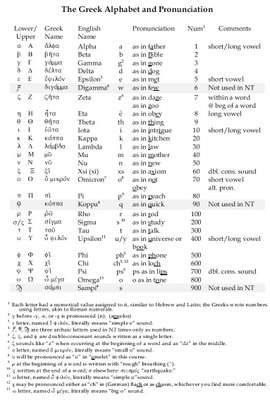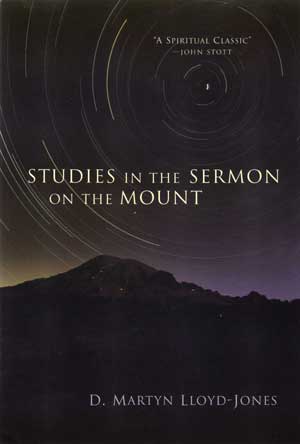Why Study the Attributes of God?
Throughout history, great men of God have devoted themselves to the study of God’s character and encouraged others to do likewise. Consider what some of those men of God have to say about studying the attributes of God.
Over 40 years ago, A. W. Tozer wrote(In The Knowledge of the Holy) concerning the desperate need for the church to revise its concept of God due to a very distorted conception of Him:
"It is my opinion that the Christian conception of God current in these middle years of the twentieth century is so decadent as to be utterly beneath the dignity of the Most High God and actually to constitute for professed believers something amounting to a moral calamity"
Tozer goes on to say,
"The heaviest obligation lying upon the Christian Church today is to purify and elevate her concept of God until it is once more worthy of Him—and of her."
A. W. Pink is of the same opinion:
"The god of this century no more resembles the Sovereign of Holy Writ than does the dim flickering of a candle the glory of the midday sun. The god who is talked about in the average pulpit, spoken of in the ordinary Sunday school, mentioned in much of the religious literature of the day, and preached in most of the so-called Bible conferences, is a figment of human imagination, an invention of maudlin sentimentality. The heathen outside the pale of Christendom form gods of wood and stone, while millions of heathen inside Christendom manufacture a god out of their carnal minds."
In one of his letters to Erasmus, Martin Luther said, “Your thoughts of God are too human.” Speaking for God, the psalmist of old penned the same thought in these words:
21 These things you have done, and I kept silence; You thought that I was just like you; I will reprove you, and state [the case] in order before your eyes (Psalms 50:21).
It would be difficult to over-estimate the importance of the study of God. Spurgeon’s words are often quoted by those who embark upon a study of the attributes of God:
"Nothing will so enlarge the intellect, nothing so magnify the whole soul of man, as a devout, earnest, continued, investigation of the great subject of the Deity. The most excellent study for expanding the soul is the science of Christ and Him crucified and the knowledge of the Godhead in the glorious Trinity.”
The proper study of the Christian is the Godhead. The highest science, the loftiest speculation, the mightiest philosophy, which can engage the attention of a child of God, is the name, the nature, the person, the doings, and the existence of the great God which he calls his Father. There is something exceedingly improving to the mind in a contemplation of the Divinity. It is a subject so vast, that all our thoughts are lost in its immensity; so deep, that our pride is drowned in its infinity. Other subjects we can comprehend and grapple with; in them we feel a kind of self-content, and go on our way with the thought, “Behold I am wise.” But when we come to this master science, finding that our plumbline cannot sound its depth, and that our eagle eye cannot see its height, we turn away with the thought “I am but of yesterday and know nothing.”
Again, AW Pink:
"Something more than a theoretical knowledge of God is needed by us. God is only truly known in the soul as we yield ourselves to Him, submit to His authority, and regulate all the details of our lives by His holy precepts and commandments. "Then shall we know, if we follow on (in the path of obedience) to know the Lord" (Hosea 6:3). "If any man will do His will, he shall know" (John 7:17). "The people that do know their God shall be strong" (Dan. 11:32)."
But is the study of God’s character not just a matter for preachers and theologians? Does such a study really have any practical value? J. I. Packer raises this very question and promptly answers it:
"Why need anyone take time off today for the kind of study you propose? Surely a layman, at any rate, can get on without it? A fair question!—but there is, I think, a convincing answer to it. The questioner clearly assumes that a study of the nature and character of God will be unpractical and irrelevant for life. In fact, however, it is the most practical project anyone can engage in. Knowing about God is crucially important for the living of our lives . . . Disregard the study of God, and you sentence yourself to stumble and blunder through life blindfold[ed] as it were, with no sense of direction and no understanding of what surrounds you. This way you can waste your life and lose your soul."
As we begin this study on the attributes of God, consider what has been said already, and what God might want to reveal about Himself to you in the new year.
Thursday, December 28, 2006
Thursday, December 21, 2006
Tuesday, December 05, 2006
Thursday, September 07, 2006
Sunday, August 27, 2006
Thursday, July 20, 2006
Papias Bible Study - Acts 1:1-11
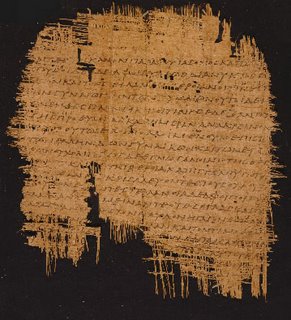
I am praying about teaching a Sunday School class on Church History, beginning with Acts.
"The Acts of the Apostles" is the name given since at least the middle of the second century to the second volume of Luke's two volume history of Christian origins. Originally the two works would have circulated together, but as soon as the four Gospels were gathered into a single unit, the two volumes of this single work were divided and took separate places in the Canon of Holy Scripture. This is, in other words, volume 2 of a two-volume history, with the Gospel of Luke the first volume.
There has almost never been any doubt that the author of Acts is also the author of the third gospel. Luke 1:3-4 says "It seemed good to me also, having followed all things closely for some time past, to write an orderly account for you, most excellent Theophilus, that you may have certainty concerning the things you have been taught."
1 In the first book, O Theophilus, I have dealt with all that Jesus began to do and teach, 2 until the day when he was taken up, after he had given commands through the Holy Spirit to the apostles whom he had chosen.
The name Theophilus is a combination of two Greek words. It means "beloved of God" or "friend of God." Little is known about him. Second-century sources indicate he was a wealthy, influential official in Antioch. Luke may have also been from Antioch, which would explain how the two men got to know each other. Theophilus was a Roman citizen who was a believer. He may have been a high-ranking Roman official because Luke referred to him as "most excellent Theophilus" (Luke 1:3). The term excellent is also used by Luke in reference to Felix and Festus, who were Roman governors (Acts 23:26, 26:25).
“But now consider the benevolent and Apostolic feelings of the writer: that for the sake of a single individual he took such pains as to write for him an entire Gospel. “That thou mightest have,” he says, “the certainty of those things, wherein thou hast been instructed.” John Chrysostom, Homily on Acts 1.
Some writers pointed out that the scroll for Acts is some 25 feet in length! It cost Luke to write these books, not only time, but also financial resources. What is God asking of us today?
Acts begins with a prologue in which Luke says that he told us in his first volume "all that Jesus began to do and teach." Acts is intended to tell us what Jesus continued to do and teach after his ascension to heaven, but now through his witnesses. We are to continue the work of evangelism and teaching that Jesus began.
Verse 2: And we are to utilize the same power that Jesus did, namely "through the Holy Spirit". Any work that we try to do or teach without the Holy Spirit is not His work.
F.F. Bruce said "The extension of the good news in the power of the Spirit is the theme of Acts."
"the apostles whom he had chosen" Jesus chose His own missionaries, taught them, and commissioned them with certain responsibilities. The same is true of all Christians: we are chosen by Christ. John 15:16.
3 To them he presented himself alive after his suffering by many proofs, appearing to them during forty days and speaking about the kingdom of God. 4 And while staying with them he ordered them not to depart from Jerusalem, but to wait for the promise of the Father, which, he said, "you heard from me; 5 for John baptized with water, but you will be baptized with the Holy Spirit not many days from now."
Verse 3: "To them he presented himself alive" – Jesus is ALIVE! He proved it! The Greek word for "proof" here is a word that includes the idea of being convincing – infallible. No other religion in the world can claim anything like this! Not to unbelievers did Jesus spend his time, but His chosen ones. It is they, in turn, that will do His work.
Appeared to them during 40 days. NT accounts of Jesus' appearances make clear that Jesus was not continually visible to the apostles during the forty days, but appeared to them on various occasions. 1 Cor 15: 5-7. Some writer make a point that during the flood it rained for forty days; Moses was on the mountain forty days; and Jesus fasted forty days. Could 40 days be signifigant in some way?
"speaking about the kingdom of God": A constant theme of Jesus' teaching. See, for example, Luke 4:43; 8:1; 9:11. It also a theme of the first missionaries, the Seventy, in Luke 10:1-9. As it should be with us also, preaching the coming kingdom!
Verse 4: "Stay in Jerusalem". The word, "staying" has a marginal reference which gives eating as the actual Greek word used. "He ate with us," says Luke, and those who were there saw him eat. (Acts 10:41)
The disciples, many of whom were from Galilee, would otherwise perhaps have returned to Galilee, but Jerusalem was to be the place of the Spirit's descent. Jesus orders them to stay in Jerusalem. “Don’t start ministering until you have the power to do so.”
What was the "promise of the Father" that He had told them about? The gift of the Holy Spirit. Jesus told the apostles they would receive the Holy Spirit after He left them (Luke 24:44-49, John 14:16, 26; 15:26; 16:7; 20:22).
“Just as when soldiers are to charge a multitude, no one thinks of letting them issue forth until they have armed themselves, or as horses are not suffered to start from the barriers until they have got their charioteer; .. Nor was this the only reason, but also there were many in Jerusalem who should believe.. For when those even who had crucified Him appear as believers, clearly this proved both the fact of the crucifixion and the iniquity of the deed, and afforded a mighty evidence of the Resurrection.” John Chrysostom, Homily on Acts 1
Verse 5: For John the Baptizer's prediction that the Messiah would baptise people with the Holy Spirit, see Mark 1:8; Matthew 3:11; Luke 3:16; John 1:33.
"Not many days from now": The apostles had been with Jesus 40 days, and they would have to wait another 10 days before the Holy Spirit fell, hence, 50 days from Resurrection to Pentecost.
“But why had the Holy Ghost not yet come? It was fit that they should first be brought to have a longing desire for that event, and so receive the grace. For this reason Christ Himself departed, and then the Spirit descended. For had He Himself been there, they would not have expected the Spirit so earnestly as they did. On this account neither did He come immediately after Christ’s Ascension, but after eight or nine days. It is the same with us also; for our desires towards God are then most raised, when we stand in need.” John Chrysostom, Homily on Acts1
6 So when they had come together, they asked him, "Lord, will you at this time restore the kingdom to Israel?" 7 He said to them, "It is not for you to know times or seasons that the Father has fixed by his own authority. 8 But you will receive power when the Holy Spirit has come upon you, and you will be my witnesses in Jerusalem and in all Judea and Samaria, and to the end of the earth."
Verse 6: When Christ taught the apostles about the kingdom after His resurrection, they thought perhaps now He would begin His reign. Old Testament prophecy gave no indication that there would be a long period of time between the first and second coming of Christ. The apostles were probably familiar with Ezekiel 36 and Joel 2, which say that the kingdom will come when the Holy Spirit is poured out. When they heard Christ say the Holy Spirit would come soon (v. 5), they thought He was about to set up His kingdom on earth. . Notice that they do not ask, “When?”, as they had before, but the question is “At this time..?” . Prophecies are found in Jeremiah 33:7; Psalms 14:7; 85:1; Hosea 6:11. Did they also have hopes of having great positions of authority in the reign of the Messiah, as before? Luke 22:24-29.
Remember that Israel at this time could be considered a "Roman occupied territory".
Verse 7: Jesus answered the disciples' question about the time of the kingdom's coming, He didn't tell them there would be no kingdom. He simply said that the time of the kingdom's coming was not for them to know. If there were no literal kingdom planned for the future, Christ would have said so in Acts 1:7. It is not for us to know when the Lord will return, for no man knows the day or the hour(Matt 24:36, 25:13, Mar 13:32).
Verse 8: "But you will receive power when the Holy Spirit comes upon you" see vs 4&5. They are presently powerless. That powerlessness was manifested at the arrest of Jesus. He was arrested and all of the disciples fled into the night. They ran like frightened sheep. But there will be a change. They will receive power - the Greek word is dunamis. This is the word from which derives our English words "dynamite", "dynamic" and "dynamo." It is more than mere authority. It the power of ability.
"you will be my witnesses": Their task will not be speculation about the end, but filling up the time that does remain with bearing witness to Christ throughout the world. A witness is simply someone who tells what he knows, what he himself has seen and heard. For the apostles as witnesses, see also Luke 24:46-48; Acts 1:22; 2:32.
"Jerusalem, Judea, Samaria, and to the ends of the earth" is something of an outline of the book of Acts. Chapters 1-7 = "in Jerusalem"; 8:1-11:18 = "Judea and Samaria"; and the rest of the book, "to the ends of the earth." The Holy Spirit was given for this reason: to empower the apostles to be Christ's witnesses in Jerusalem, and then on to the ends of the earth.
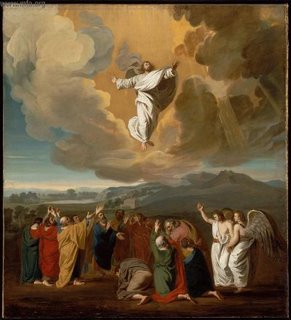
9 And when he had said these things, as they were looking on, he was lifted up, and a cloud took him out of their sight. 10 And while they were gazing into heaven as he went, behold, two men stood by them in white robes, 11 and said, "Men of Galilee, why do you stand looking into heaven? This Jesus, who was taken up from you into heaven, will come in the same way as you saw him go into heaven."
Verses 9: For direct verbal echoes, see 2 Kings 2:9-13 (Elijah's ascension). While only Luke tells us the story of the Ascension, there are other possible traces of the tradition of the Ascension in Ephesians 4:8-10; 1 Timothy 3:16; John 20:17. He had given them the instruction they needed, their commission, and told them to await the descent of the Spirit. His work was done and so he left them. Note the quiet removal; no pomp, no ceremony, as would have certainly been the case in a legendary account. Was the cloud the Shekinah glory of the Lord?
Wherefore also we keep the eighth day for rejoicing, in the which also Jesus rose from the dead, and having been manifested ascended into the heavens. Barnabas 15:9
Verse 10: While they strain to look(gazing into heaven) for Jesus, two angels stood by them.
Verse 11 There is almost a reproach in the words of the two angels: "Why are you standing here looking into the sky?" It is a gentle reproach as indicated by the fact that they encourage them with the thought that the Lord will return, just as they saw him leave. Jesus had told them that he was going to ascend(John 6:62, 20:17).
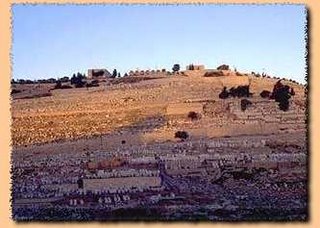 The Ascension occurred on the Mount of Olives, as we are told in v. 12. He will return to the Mount of Olives, as Zechariah tells us...
The Ascension occurred on the Mount of Olives, as we are told in v. 12. He will return to the Mount of Olives, as Zechariah tells us... “On that day his feet shall stand on the Mount of Olives that lies before Jerusalem on the east, and the Mount of Olives shall be split in two from east to west by a very wide valley, so that one half of the Mount shall move northward, and the other half southward. And you shall flee to the valley of my mountains, for the valley of the mountains shall reach to Azal. And you shall flee as you fled from the earthquake in the days of Uzziah king of Judah. Then the LORD my God will come, and all the holy ones with him.” Zech 14: 4-5(ESV)
The same Christ who ascended into heaven in Acts 1:9 will return the same way. He won't be different. He will return in the same glorified body that the disciples saw when Christ joined them for breakfast by the Sea of Galilee in John 21:4-14.
And thus was He, with the flesh, received up in their sight unto Him that sent Him, being with that same flesh to come again, accompanied by glory and power. For, say the [holy] oracles, "This same Jesus, who is taken up from you into heaven, shall so come, in like manner as ye have seen Him go unto heaven."But if they say that He will come at the end of the world without a body, how shall those "see Him that pierced Him," and when they recognise Him, "mourn for themselves? "For incorporeal beings have neither form nor figure, nor the aspect of an animal possessed of shape, because their nature is in itself simple. Chapter 3 - The Epistle of Ignatius to the Smyrnaeans
He who suffered "will come again from heaven,"and by all shall He be seen, who rose again from the dead. They too who crucified Him shall see and acknowledge Him; that is to say, His very flesh, against which they spent their fury, and without which it would be impossible for Himself either to exist or to be seen; so that they must blush with shame who affirm that His flesh sits in heaven void of sensation, like a sheath only, Christ being withdrawn from it; as well as those who (maintain) that His flesh and soul are just the same thing, or else that His soul is all that exists, but that His flesh no longer lives. Chapter 24 On the Flesh of Christ, Tertullian
..the primary Word-flesh and blood, yet purer than ours-who "shall descend in like manner as He ascended into heaven"the same both in substance and form, as the angels affirmed, so as even to be recognised by those who pierced Him. Designated, as He is, "the Mediator between God and man," He keeps in His own self the deposit of the flesh which has been committed to Him by both parties-the pledge and security of its entire perfection. For as "He has given to us the earnest of the Spirit, "so has He received from us the earnest of the flesh, and has carried it with Him into heaven as a pledge of that complete entirety which is one day to be restored to it. Chap 51 - On the Resurrection of the Flesh, Tertullian

He will come again on the clouds of heaven, just as He appeared when He ascended into heaven. Chapter 30, Against Praxeas, Tertullian
Now every one who bears witness to the truth, whether he support it by words or deeds, or in whatever way, may properly be called a witness (martyr); but it has come to be the custom of the brotherhood, since they are struck with admiration of those who have contended to the death for truth and valour, to keep the name of martyr more properly for those who have borne witness to the mystery of godliness by shedding their blood for it. The Saviour gives the name of martyr to every one who bears witness to the truth He declares; thus at the Ascension He says to His disciples:"You shall be my witnesses in Jerusalem and in Judaea and in Samaria and unto the uttermost parts of the earth." II.28, Commentary on the Gospel of John, Origen
This is a confirmation of the Resurrection; for if he was taken up with a body, much rather must He have risen again with a body. John Chrysostom, Homily on Acts 1.
Knowing that Christ will return someday should motivate us to serve Him diligently. Someday we will all appear before the judgment seat of Christ to receive rewards for what we did while on earth (2 Cor. 5:10). Christ said, "Behold, I come quickly, and my reward is with me, to give every man according as his work shall be" (Rev. 22:12). One of the greatest motivators for serving Jesus is that He will reward us for what we have done.
Sunday, July 09, 2006
Sunday, June 25, 2006
Garden Pics Cont'd


These are both Dahlias. I planted them as bulbs two years ago, and I haven't felt like digging them back up. They are coming up again this year too! The red one is called a "Dinner Plate", and some get about a foot across. And yes, these need to be staked!

Gladiolas! Same deal here also. Planted them last year, and didn't dig them up either. The color is just amazing!
Thursday, June 22, 2006
Green Bay Pics
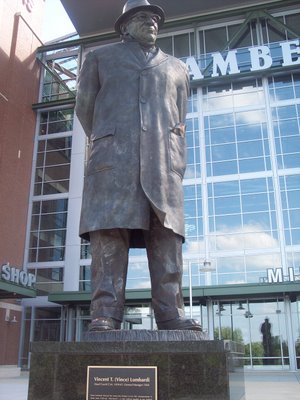

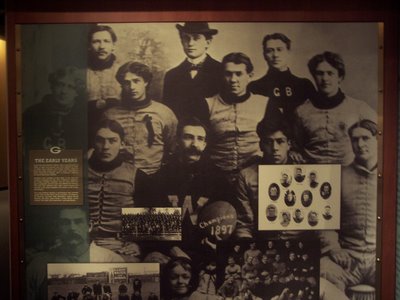
Hockey season is over. Basketball season is over. All we have for the next two months is baseball. But Football is right around the corner.
These pics I took last year when I FINALLY got a chnace to go to Green Bay, Wisconson.
GO PACKERS!
Coach Lombardi
This pics hows their 3 SuperBowl trophies.
I went through the Packer Hall of Fame there at Lambeau - very cool!
Sunday, June 18, 2006
Father's Day Present
Friday, June 16, 2006
Garden Pics

This is a "Weeping Norway Spruce" that I got at the end of last season for $60! They usually go for more than double, if not triple that! The guy who sold it to me didn't want to repot it, it was getting too big! The tree got a bunch of new growth this spring, so it looks like he's gonna make it. Those are "Mexican Beach Pebbles" in the front - so cool, but at $30 a bag, a bit expensive.

Hydrangea Flowers. I hope they get bigger than this, but you just never know with Hydrangeas!

Hostas. The one is front is a "Blue Mammoth" variety. This one should get about 5 feet across when mature. It now has three stalks of flowers.
Saturday, June 03, 2006
Friday, June 02, 2006
Monday, May 22, 2006
Tuesday, April 25, 2006
Monday, April 24, 2006
Sunday, April 23, 2006
Wednesday, April 12, 2006
Tuesday, April 11, 2006
What I'm Reading/Listening To Now

I saw this in the library, and I just had to get it. I like books on leadership, but not the standard ones - so this was a must buy - for 4 bucks!

Been listening to more choral music lately, so this one seemed like a natural. Oh man! Did those folks know something about music!
Wednesday, March 29, 2006
Theophilus
Put yourself in the place of Theophilus, you want to know how this “Jewish religion” moved from Jerusalem to Rome. Also, you want to know more about what you believe than you do.
Meaning: lover of God
a Christian, probably a Roman, to whom Luke dedicated both his Gospel (Luke 1:3) and the Acts of the Apostles (1:1). Nothing beyond this is known of him. From the fact that Luke applies to him the title "most excellent", the same title Paul uses in addressing Felix (Acts 23:26; 24:3) and Festus (26:25), it has been concluded that Theophilus was a person of rank, perhaps a Roman officer.
Theophilus is the name to which the Gospel of Luke and the Acts of the Apostles is addressed. His life would coincide with the writing of Luke and Acts, sometime between 40-150, depending on which tradition one subscribes to. Coptic tradition asserts he was a Jew of Alexandria, while another tradition claims he was a converted Roman official, owing to the honorific, "most excellent" (Lk. 1:3). Yet another tradition maintains that this Theophilus was not a specific person, as "theophilus" means "lover of God", and thus the books could be addressed to anyone who fits that description.
In "The Acts of the Apostles." Dr. Luke writes about the activity and actions of the apostles as they take the message and ministry of Jesus to the First Century world. Beginning in verse one and through the ending verse of the book, Dr. Luke gave to his friend, Theophilus, an ongoing account of how the followers of Christ continued the witness and work of Christ under the power and guidance of the Holy Spirit. Dr. Luke invested all of his effort and energy in this one man to bear witness to him and to disciple him.
As Luke undertakes the opportunity to witness, he does so as the "least likely" in many people's opinion. He writes as the only Gentile writer in the New Testament and from the position of a layman.
Luke invested his time and energy writing the Gospel of Luke on a scroll approximately 25 feet long.
Some people argue that the name Theophilus originated from two Greek words that formed a compound word which means "God lovers." Their conjecture is that this refers to a category of people who may be identified as "God lovers." If you read in Luke 1:3, you find this possibility is ruled out because Luke addresses his Gospel to one entitled "most excellent Theophilus."
It was not uncommon for writers in literary circles to dedicate their books to distinguished persons. We have the example of the Jewish historian Josephus (A.D. 37-c.100), who dedicated his two-part work, Against Apion, to an individual named Epaphroditus.
Josephus introduced his first volume by addressing him as: "Epaphroditus, most excellent [kratiste] of men" (1:1). (In citations from Josephus, the first number will refer to his book number and the second to the numbers used in the Greek text which also appear in English translations.)
The second book of Against Apion began with these words: "By means of the former volume, my most honored Epaphroditus, I have demonstrated our antiquity..." (2:1). Here we see opening words that are strikingly similar to Luke's dedication.
Luke's dedication to his gospel implies that Theophilus may have been interested in discipleship, or was already a Christian. There, Luke told Theophilus that he wrote Luke-Acts for him, "So that you may know the certainty of the things you have been taught" (Luke 1:4). F.F. Bruce painted the following fairly reasonable portrait of Theophilus. He wrote: "It is quite probable that Theophilus was a representative member of the intelligent middle-class public at Rome whom Luke wished to win over to a less prejudiced and more favorable opinion of Christianity than that which was current among them....Theophilus had already learned something about the rise and progress of Christianity, and Luke's aim was to put him in possession of more accurate information than he already had," The International Commentary on the New Testament, "The Book of Acts," revised edition, page 29."
However, Luke must have had a much wider readership in view than just Theophilus. The fact that both the gospel and Acts have survived indicates that the two volumes were copied, widely distributed in the churches, and publicly read.
While not explicitly stated, Luke's purpose in Acts seems to be to show the continuing work of Jesus, carried out by the power of the Holy Spirit and through the agency of the Church. In short, Luke is saying that Jesus is alive, and his life and work proceed in the Church--and in greater power.
The Muratorian canon confirms the Lukan authorship of the Book of Acts: "Moreover the Acts of the Apostles are included in one book. Luke addressed them to the most excellent Theophilus, because the several events took place when he was present; he makes this plain by the omission of the passion of Peter and of the journey of Paul when he left Rome for Spain."
Meaning: lover of God
a Christian, probably a Roman, to whom Luke dedicated both his Gospel (Luke 1:3) and the Acts of the Apostles (1:1). Nothing beyond this is known of him. From the fact that Luke applies to him the title "most excellent", the same title Paul uses in addressing Felix (Acts 23:26; 24:3) and Festus (26:25), it has been concluded that Theophilus was a person of rank, perhaps a Roman officer.
Theophilus is the name to which the Gospel of Luke and the Acts of the Apostles is addressed. His life would coincide with the writing of Luke and Acts, sometime between 40-150, depending on which tradition one subscribes to. Coptic tradition asserts he was a Jew of Alexandria, while another tradition claims he was a converted Roman official, owing to the honorific, "most excellent" (Lk. 1:3). Yet another tradition maintains that this Theophilus was not a specific person, as "theophilus" means "lover of God", and thus the books could be addressed to anyone who fits that description.
In "The Acts of the Apostles." Dr. Luke writes about the activity and actions of the apostles as they take the message and ministry of Jesus to the First Century world. Beginning in verse one and through the ending verse of the book, Dr. Luke gave to his friend, Theophilus, an ongoing account of how the followers of Christ continued the witness and work of Christ under the power and guidance of the Holy Spirit. Dr. Luke invested all of his effort and energy in this one man to bear witness to him and to disciple him.
As Luke undertakes the opportunity to witness, he does so as the "least likely" in many people's opinion. He writes as the only Gentile writer in the New Testament and from the position of a layman.
Luke invested his time and energy writing the Gospel of Luke on a scroll approximately 25 feet long.
Some people argue that the name Theophilus originated from two Greek words that formed a compound word which means "God lovers." Their conjecture is that this refers to a category of people who may be identified as "God lovers." If you read in Luke 1:3, you find this possibility is ruled out because Luke addresses his Gospel to one entitled "most excellent Theophilus."
It was not uncommon for writers in literary circles to dedicate their books to distinguished persons. We have the example of the Jewish historian Josephus (A.D. 37-c.100), who dedicated his two-part work, Against Apion, to an individual named Epaphroditus.
Josephus introduced his first volume by addressing him as: "Epaphroditus, most excellent [kratiste] of men" (1:1). (In citations from Josephus, the first number will refer to his book number and the second to the numbers used in the Greek text which also appear in English translations.)
The second book of Against Apion began with these words: "By means of the former volume, my most honored Epaphroditus, I have demonstrated our antiquity..." (2:1). Here we see opening words that are strikingly similar to Luke's dedication.
Luke's dedication to his gospel implies that Theophilus may have been interested in discipleship, or was already a Christian. There, Luke told Theophilus that he wrote Luke-Acts for him, "So that you may know the certainty of the things you have been taught" (Luke 1:4). F.F. Bruce painted the following fairly reasonable portrait of Theophilus. He wrote: "It is quite probable that Theophilus was a representative member of the intelligent middle-class public at Rome whom Luke wished to win over to a less prejudiced and more favorable opinion of Christianity than that which was current among them....Theophilus had already learned something about the rise and progress of Christianity, and Luke's aim was to put him in possession of more accurate information than he already had," The International Commentary on the New Testament, "The Book of Acts," revised edition, page 29."
However, Luke must have had a much wider readership in view than just Theophilus. The fact that both the gospel and Acts have survived indicates that the two volumes were copied, widely distributed in the churches, and publicly read.
While not explicitly stated, Luke's purpose in Acts seems to be to show the continuing work of Jesus, carried out by the power of the Holy Spirit and through the agency of the Church. In short, Luke is saying that Jesus is alive, and his life and work proceed in the Church--and in greater power.
The Muratorian canon confirms the Lukan authorship of the Book of Acts: "Moreover the Acts of the Apostles are included in one book. Luke addressed them to the most excellent Theophilus, because the several events took place when he was present; he makes this plain by the omission of the passion of Peter and of the journey of Paul when he left Rome for Spain."
Thursday, March 23, 2006
What I'm listening to now...
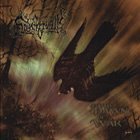
Slechtvalk - At the Dawn of War. For when I am in a "metal mood". I just got this CD, and its good, but a little different. If you like Antestor and Extol then check this one out. You can find lyrics here: http://www.christianrocklyrics.com/slechtvalk.php

Slechtvalk - At the Dawn of War. For when I am in a "metal mood". I just got this CD, and its good, but a little different. If you like Antestor and Extol then check this one out. You can find lyrics here: http://www.christianrocklyrics.com/slechtvalk.php
Tuesday, March 21, 2006
New post.
I haven't posted here for awhile.
I have read several books since my last post. Let's see, I read:
The White Plague by Frank Herbert - Pretty good. Fiction. A guy loses his family to an IRA bomb, then bioengineers a virus that only kills woman - so that the world can feel his pain. A little slow in parts, but it made me say "UH!" a couple of times.
Spies Among us by Ira Winkler - Pretty good. I had read an account of his getting into an office for penetration testing, and was hoping that the book was going to have alot more stories like that, but it didn't.
I then read Churches That Abuse by Ron Enroth. This book is almost 15 years old, but it seems as fresh today as back in 1992. Recommended reading!
I haven't posted here for awhile.
I have read several books since my last post. Let's see, I read:
The White Plague by Frank Herbert - Pretty good. Fiction. A guy loses his family to an IRA bomb, then bioengineers a virus that only kills woman - so that the world can feel his pain. A little slow in parts, but it made me say "UH!" a couple of times.
Spies Among us by Ira Winkler - Pretty good. I had read an account of his getting into an office for penetration testing, and was hoping that the book was going to have alot more stories like that, but it didn't.
I then read Churches That Abuse by Ron Enroth. This book is almost 15 years old, but it seems as fresh today as back in 1992. Recommended reading!
Subscribe to:
Posts (Atom)















